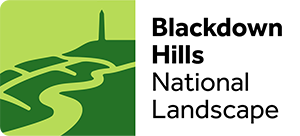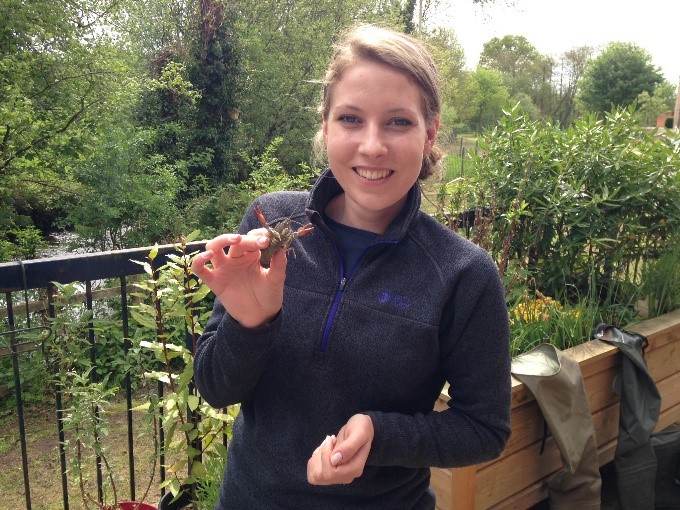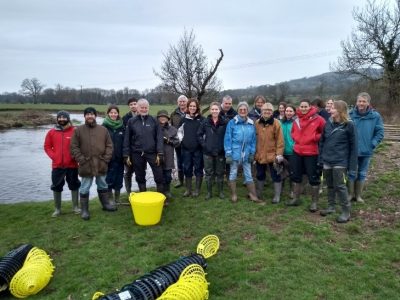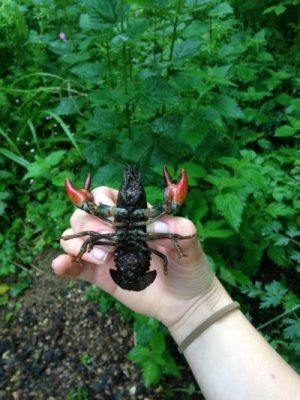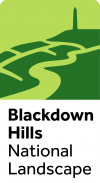Surveying crayfish in the River Culm
My name is Sarah Marsh. I am currently volunteer project assistant with the Culm Community Crayfish project. I have always loved science and nature, and my interest in ecology developed even more during my Biology degree at the University of Bristol. After graduating in the summer of 2017, I soon realised that experience is key to breaking into the environment sector and volunteering with Blackdown Hills AONB is helping me get that experience. Since starting my volunteer placement, I have also secured a job as a part-time seasonal ecologist with Richard Green Ecology, keeping me busy in the evenings with bat surveys.
The aim of the Culm Community Crayfish project is to assess the populations of the endangered native white-clawed crayfish and the invasive American signal crayfish in the River Culm, whilst also educating and engaging the local community with the project. In total we will be surveying 30km of river, all with the invaluable help of local volunteers!
I am gaining a valuable insight into just how much planning and research goes on behind the scenes for a project like this. After a couple of months of planning in the office, it was great to start surveying out on the river in April with the volunteers. Time is flying by with such a busy survey schedule, but I love being able to spend so much time out on the river, and I haven’t fallen in yet! Having learnt about the invasive signal crayfish at university, it is great to be involved in such a relevant and varied project.
One of the highlights so far has got to be when I caught my first crayfish, despite it being the invasive species!
The school education sessions are now well underway. These include a river dipping session – a great opportunity to inspire the next generation of biologists and test out my newly-found freshwater invertebrate identification skills! I have gained so much experience already and I am looking forward to seeing what the coming months will entail.
